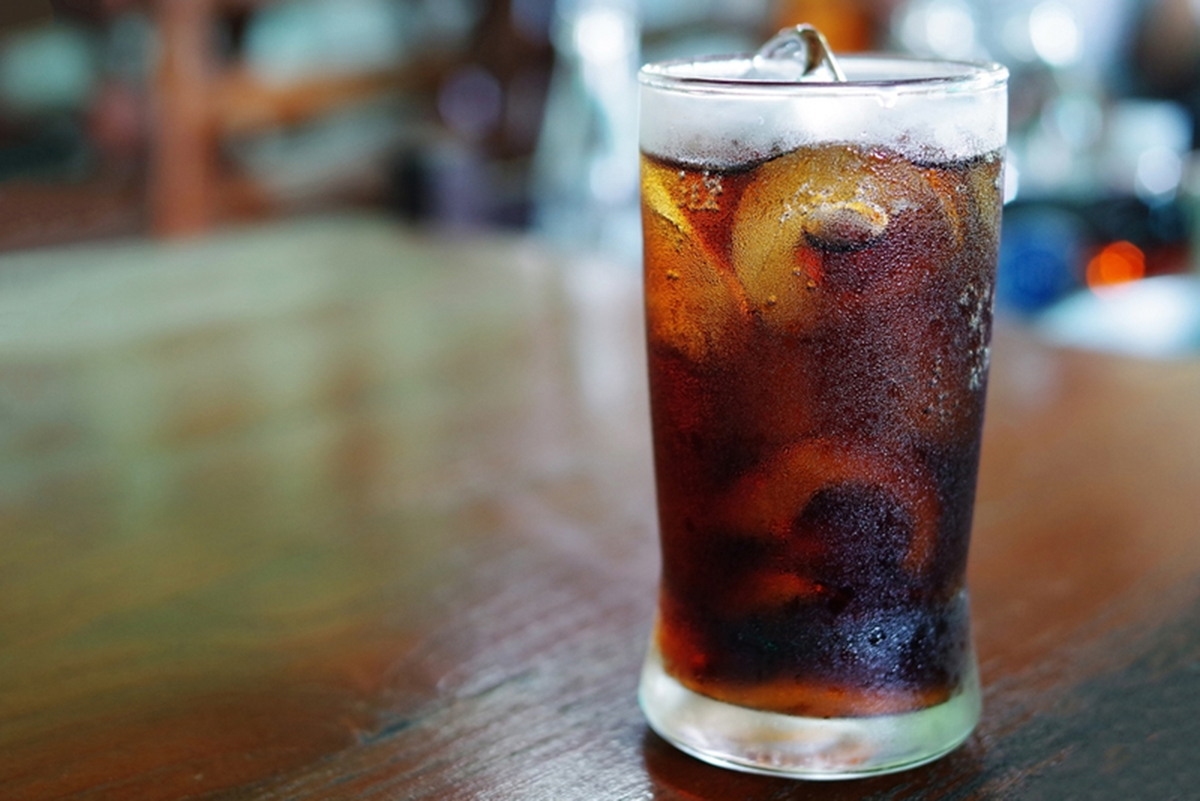Fizzy, sugary colas increase the risk of osteoporosis. But all soft drinks are not equally detrimental to bone health.

Do soft drinks really melt your bones?
A long-term research project called the Framingham Heart Study has been following lifestyle choices and their health consequence of thousands of residents of Framingham, Massachusetts since 1948. Many of the original participants of the study are long deceased, as are the original researchers, so since 1971 the project has tracked the health of the now-aging Offspring Cohort. In the late 1990s, the Framingham researchers started collecting data on 1125 men and 1413 women aged 30 to 87 to see if there was a relationship between the consumption of carbonated beverages and bone mineral density, which would indicate osteoporosis.
Researchers asked these 2528 people to keep track of their daily consumption of sugared caffeinated cola beverages, sugared decaffeinated cola beverages, diet caffeinated cola beverages, diet decaffeinated cola beverages, other sugared carbonated soft drinks, and other diet soft drinks. The researchers took a closer look at cola beverages, soft drinks like Coca-Cola that are made with extracts from cola nuts. They further divided cola consumption into sugared cola, decaffeinated cola, and diet cola. Soft drink consumption was compared to DXA scans of bone mineral content, and dozens of other variables (smoking, drinking, calcium intake, vitamin D intake, fruit and vegetable intake, physical activity, and more) were taken into account.
The people of Framingham were a lot like other Americans. They like their soft drinks. Men drank an average of six soft drinks a week, mostly diet. Women drank an average of five soft drinks a week, about half of them diet drinks and about half of them sugar-sweetened. Men preferred caffeinated colas. Women also drank more caffeinated beverages than decaffeinated soft drinks but were more likely to choose decaf. Some people drank no soft drinks at all. Some people drank 10 Coca-Colas a day. And when all the data were analyzed, here is what the researchers found:
- All kinds of soft drinks were associated with some increased risk of bone mineral loss.
- Sugar-sweetened cola soft drinks were more likely than all other beverages to be associated with reduced bone mineral density, especially in a part of the hip bone known as Ward's area, where scans showed the most bone mineral loss. Sugar-sweetened colas make the worst damage to the hip bone even worse.
- Caffeinated soft drinks caused more bone loss, especially in the hip, than decaf soft drinks. Caffeinated cola soft drinks were more harmful than other caffeinated soft drinks.
- Diet colas caused about half as much bone loss as sugar-sweetened colas.
The study showed clear issues with caffeine, sugar, and cola extracts. The problem with soft drinks that use cola nut flavorings is that they contain phosphoric acid. It is added to mask some unpleasant flavors from the cola nut in cola drinks, and it also is used to hide off flavors from certain artificial sweeteners. It is hard to find a cola drink that does not include it. Soft drink containers will list phosphoric acid on the label.
But there are always individual differences. Different people drink different amounts of milk. They eat different amounts of vegetables. They drink different amounts of coffee and tea. They get different amounts of calcium in their diet.
So, did any of these variables change the effects of soft drink consumption on bones? Surprisingly, in this study, other dietary choices did not override the effects of soft drinks on bone health. Soft drinks damage bone, and diet does not make up for it. The effects of years of drinking soft drinks were most severe for women over the age of 60.
This Framingham study was consistent with other findings from around the world. A study in South Australia found that bone loss, chronic pulmonary obstructive disease, and osteoporosis were more likely with increasing consumption of soft drinks, even before the age of 60. A study in Saudi Arabia found that high soft drink consumption was linked to loss of bone mineral density of women even before the age of 40.
But I can't give up my Diet Coke!
There aren't any 12-step groups for Diet Coke addiction. You won't get a referral to a rehab center if you break your hip after swilling down thousands of gallons of Diet Mr. Pibb. But there are some simple things you can do to break your addiction to soft drinks in as little as a week:
- Replace soda with other sources of caffeine. If you drink sodas as a pick-me-up, consider coffee or iced tea. They aren't great for your bones, either, but they don't come loaded with phosphoric acid or high-fructose corn syrup.
- Go nuts! Instead of getting a sugar high from a soft drink that leads to a sugar crash later, eat a slow-energy, stable-energy like almonds.
- Kill the yeastie beasties. Sometimes the underlying cause of soft drink urges is a low-grade yeast infection. Cut back on sugar, and you won't crave as much sugar-free. Replace soft drinks with sparkling water and herbal teas.
- Detox from the news. Do you start your day with tweets, tornadoes, and terrorism? Turn off the tube and lower your stress levels so you aren't as tempted to indulge your soft drink habit.
- Hammad LF, Benajiba N. Lifestyle factors influencing bone health in young adult women in Saudi Arabia. Afr Health Sci. 2017 Jun.17(2):524-531. doi: 10.4314/ahs.v17i2.28. PMID: 29062349.
- Shi Z, Ruel G, Dal Grande E, Pilkington R, Taylor AW. Soft drink consumption and multimorbidity among adults. Clin Nutr ESPEN. 2015 Apr.10(2):e71-e76. doi: 10.1016/j.clnesp.2015.01.001. Epub 2015 Mar 19. PMID: 28531462.
- Tucker KL, Morita K, Qiao N, Hannan MT, Cupples LA, Kiel DP. Colas, but not other carbonated beverages, are associated with low bone mineral density in older women: The Framingham Osteoporosis Study. Am J Clin Nutr. 2006 Oct.84(4):936-42. PMID: 17023723.
- Photo courtesy of SteadyHealth

